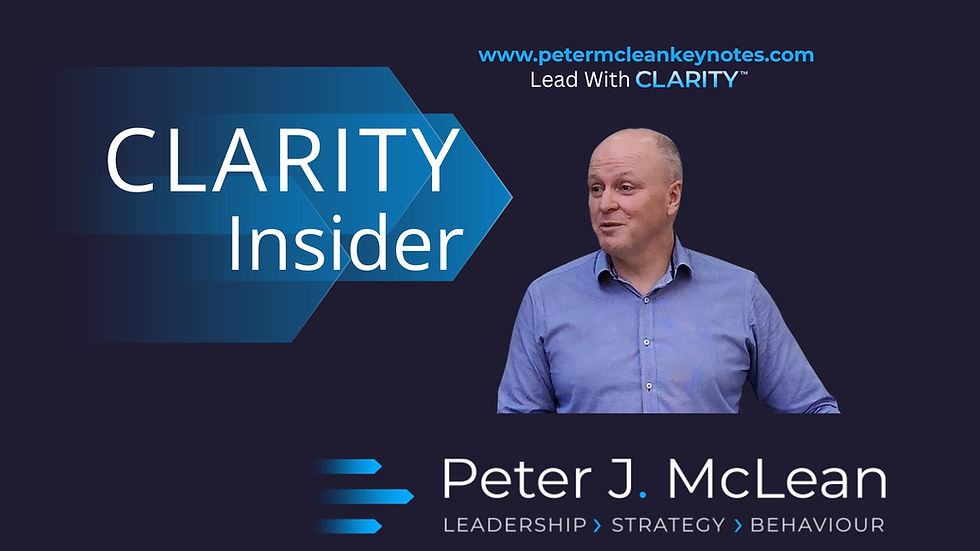The Difficult Conversations
- Peter McLean

- Oct 18, 2025
- 2 min read
What do you do with difficult conversations?
One of the key factors in handling difficult conversations is to first identify two underlying aspects at play by asking yourself these two questions:
1) What is the principle reason for my need to address the person - Constructive or Destructive?
If it's constructive, then I am discussing something that will benefit others and our shared goals or is for the purpose of maintaining a standard or achieving an outcome that is of benefit.
If it’s destructive, then I am approaching this out of personal angst, remorse or unwarranted pain.
2) Why do I anticipate this will be difficult? This could be for any of the following reasons:
- their historical reactions
- my inability to articulate the problem
- I have not adequately anticipated objections and responses
- because I know this is unwarranted
- because the outcome may be painful for the other or me
- for fear of negative experience or consequences
- because I am tired and may not exercise appropriate restraint or tact
- I fear the situation could spiral out of control, now or in the aftermath
Once you've clarified these two aspects for yourself, you can plan your approach and contingent actions with greater certainty.
But uppermost in your mind, if you can answer the question, "Am I seeking to build up on behalf of someone here or to tear down?" then you can frame it in your preparation and take courage that you can approach the conversation confidently and effectively.
---
If you’d like a clear framework for navigating pressure and high-stakes conversations as a leader, I cover this in my Lead With CLARITY™ work.
You can learn more or book a confidential Sounding Board Call at:
Peter McLean
Keynote Speaking, Consulting, Coaching
#Leadership #Communication #LeadWithClarity #ExecutiveCoaching #OrganisationalCulture #LeadershipDevelopment #DifficultConversations





Comments